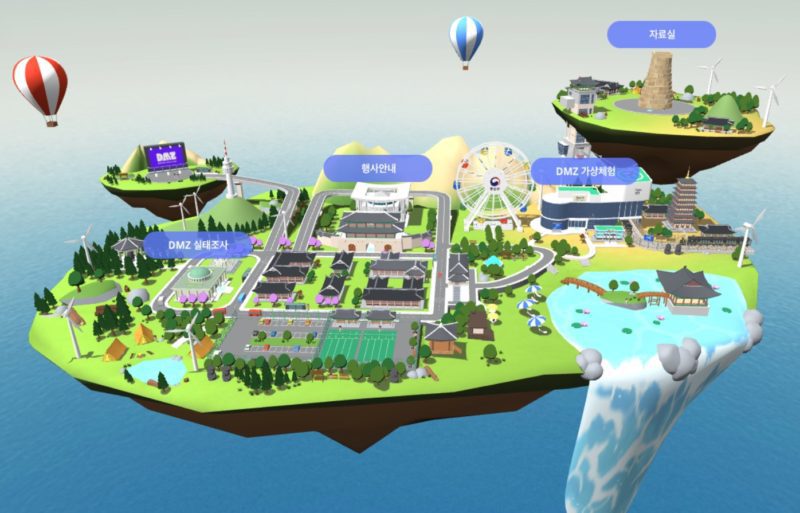Quick take:
- Visitors can move through 3D versions of real-life locations in the metaverse DMZ.
- The metaverse platform was created to help visitors understand the DMZ’s history.
- South Korea wants to rebrand the DMZ into a “peace tourism” destination.
South Korea’s Unification Ministry has launched a virtual version of its demilitarized zone (DMZ), giving visitors a glimpse of the historic buffer zone that stands on the border between North and South Korea.
The ministry, which created the platform, said that the metaverse DMZ “expands the real experience of the DMZ with personalized avatars and immersive technology” and that the website is a “public collaboration and communication platform that transcends time and space constraints.”
With the Covid regulations keeping the DMZ sites closed for the last two years, visitors now have a chance to get a peek inside the zone virtually.
Speaking to UPI, a Unification Ministry official said: “It’s not easy for the public to visit the DMZ,” citing travel times and lengthy application procedures. “We created this metaverse platform to help enhance people’s understanding of the DMZ.”
Visitors can take a tour through 3D versions of real-life locations in the metaverse DMZ, including the Panmunjom truce village where former US President Donald Trump and North Korean leader Kim Jong Un briefly met in 2019.
Users can also visit a recreation of the DMZ Peace Trail in Goseong, which is currently closed due to Covid regulations. A recreation of an excavator damaged by a land mine on the Goseong DMZ trails is also in the metaverse DMZ.
Besides the virtual replicas of the DMZ sites, visitors can also access libraries of information about the history and ecology of the DMZ.
During a short period of renewed diplomacy between the two Koreas from 2018 to 2018, South Korea wanted to rebrand the DMZ – one of the most heavily fortified borders in the world – into a “peace tourism” destination in a bid to shed the buffer zone’s hostile reputation.
However, diplomatic relations with North Korea is currently at a low after Pyongyang launched its first intercontinental ballistic missile last week, sparking concerns of a nuclear test.
South Korea has been vocal about embracing the Web3 world in the last few months. In February, the country pledged $186.7 million in February to create its National Metaverse Ecosystem. Prior to that, South Korea revealed its plans to become the fifth-largest metaverse market globally by 2026.
During South Korea’s recently concluded presidential election, candidates Yoon Suk-yeol from the People Power Party and Lee Jae-myung from the Democratic Party both made crypto-friendly statements such as lifting South Korea’s de facto ban on ICOs.
With his pledge to deregulate Korea’s crypto industry and raise the capital gains tax threshold, Yoon Suk-yeol emerged as the winner, becoming South Korea’s new pro-crypto president.
Stay up to date:





